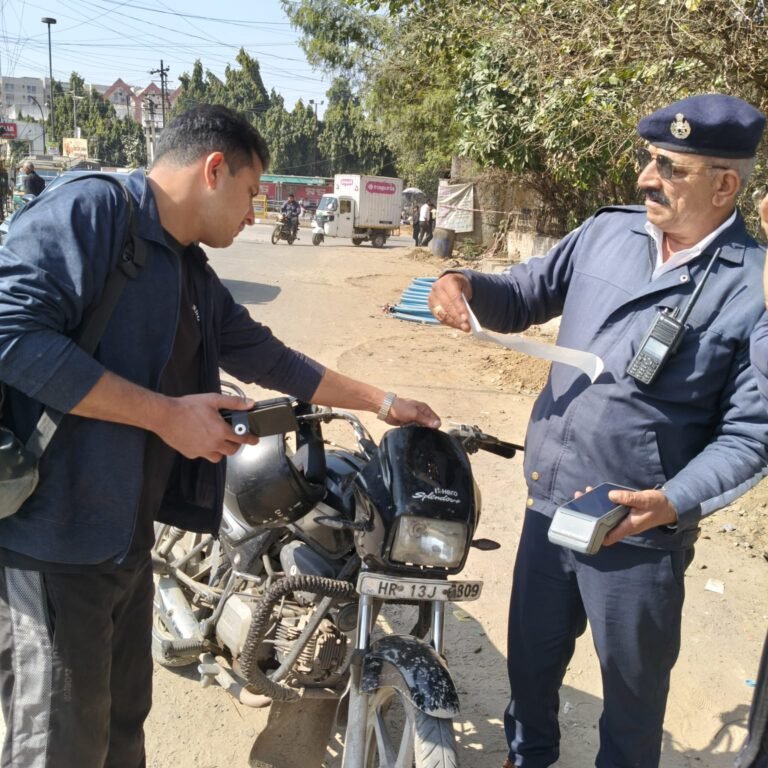Bilkul Sateek News
Gurugram, 23 April – On April 16, 2025, in Gurugram’s DLF Altima society, a woman lost ₹400,000 after responding to what she believed was a guaranteed online position with Amazon. Claiming to act on behalf of the e-commerce giant, individuals using the aliases “Jahnvi Sangl” and “Hariom Lodwal” built confidence by making nominal task payments before demanding larger “investment” fees. Over six transactions that day, the victim transferred ₹400,000 to accounts held by five different people. Realizing the scheme’s fraudulent nature only after threats that earlier payouts would be withheld, she filed a complaint at Manesar Cyber Police Station, and authorities registered a case and opened an investigation on the same day. This incident adds to a swell of online recruitment frauds: Gurugram recorded 16,788 cyber-fraud complaints and an estimated ₹125 crore in losses in 2024, even as enforcement actions increased arrests year-on-year.
According to her statement, the unemployed resident of DLF Altima, Sector 81, had been without work for two months when a message offering an Amazon job arrived on her phone. A caller added her to a Telegram group populated by purported recruiters who tasked her with simple online assignments and paid small sums to build credibility. After demonstrating reliability through fractionated payouts, the group pressed her to “invest” larger sums; she sent ₹100,000 initially and, under pressure, wired three subsequent transfers summing to ₹300,000. “I trusted them because they provided small payments at first,” she told investigators. When she asked for proof of ongoing work, the callers threatened to cease all payments unless further funds were deposited, prompting her to contact police.
The Manesar Cyber Police have registered an FIR under IPC Section 420 (cheating) and relevant provisions of the IT Act, and are examining call logs, bank-transfer trails, and group metadata to trace the orchestrators of this operation. “We are closely coordinating with the Indian Cyber Crime Coordination Centre to analyse digital trails and bring the accused to justice,” said Priyanshu Diwan, ACP (Cyber Crime) for the Gurugram Police.
Similar recruitment cons have surfaced elsewhere: in Jind, a woman was cheated of ₹165,000 after joining a Telegram work-from-home group and was turned away when she couldn’t pay additional fees; in Faridabad last month, six people were remanded for allegedly swindling ₹144,500 from a resident via a WhatsApp-based job offer; and in Bengaluru, a software professional lost ₹1.7 million in a single-day Telegram fraud that initially paid micro-task rewards before demanding “investment” fees.
In late March, Gurugram Cyber Crime teams arrested 24 suspects across India accused of defrauding victims in 9,017 complaints totalling ₹33.94 crore, one of several busts signalling intensified police action. Yet the technology-enabled cons continue: the Gurugram Police’s recent review of 17 seized devices and SIM cards linked 27 arrested individuals to ₹157.90 crore in fraud across 14,633 complaints nationwide. Authorities warn job seekers to confirm vacancies directly through official corporate portals, refuse any upfront fees, and report suspect messages to the Manesar Cyber Police helpline immediately.
— End of Report —











